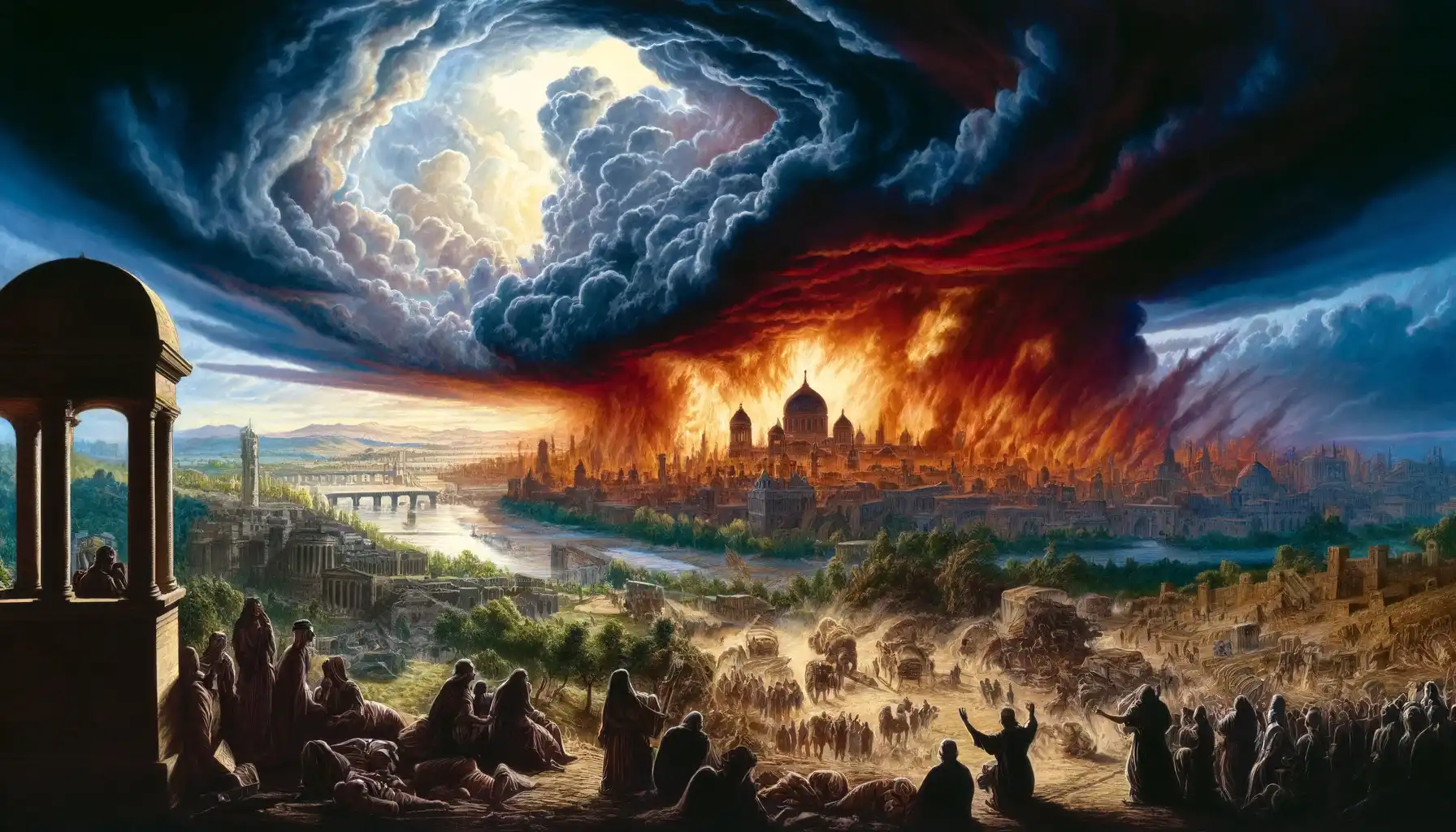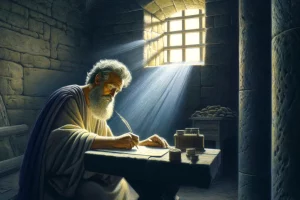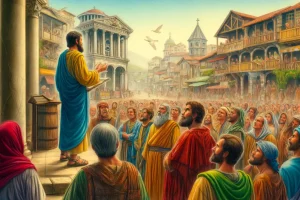
The Book of Zephaniah
The Book of Zephaniah is a prophetic text from the Old Testament, known for its intense warnings of judgment and its promise of restoration. Here are some quick facts about the Book of Zephaniah:
- Authorship: Zephaniah, the son of Cushi, and a descendant of Hezekiah, is identified as the prophet and author. He traces his lineage back four generations, which is unique among the prophets.
- Date: Zephaniah prophesied during the reign of King Josiah of Judah, around 640-609 BCE, placing him in the period shortly before the fall of Jerusalem in 586 BCE.
- Themes:
- The Day of the Lord: Zephaniah emphasizes the impending “Day of the Lord,” a time of judgment not only for Judah but for all nations.
- Judgment and Punishment: The prophet warns of severe punishment for sin, particularly idolatry and complacency.
- Hope and Restoration: Despite the grim warnings, Zephaniah concludes with promises of restoration and renewal for the remnant of Israel.
- Structure: The book is divided into three chapters:
- Chapter 1 describes the coming judgment on Judah and Jerusalem.
- Chapter 2 extends the prophecy of doom to the surrounding nations.
- Chapter 3 shifts from doom to hope, promising future joy and restoration for the humble and faithful remnant of God’s people.
- Key Verses:
- Zephaniah 1:14: “The great day of the LORD is near, near and hastening fast; the sound of the day of the LORD is bitter; the mighty man cries aloud there.”
- Zephaniah 3:17: “The LORD your God is in your midst, a mighty one who will save; he will rejoice over you with gladness; he will quiet you by his love; he will exult over you with loud singing.”
- Literary Features: Zephaniah uses vivid imagery and intense language to convey the urgency and severity of the coming judgment, as well as the joy of the eventual restoration.
- Theological Significance: The book underscores God’s justice in punishing wickedness and His mercy in promising renewal. It highlights God’s sovereignty over all nations and the universal scope of His judgment and salvation.
The Book of Zephaniah, nestled among the Twelve Minor Prophets of the Old Testament, delivers a potent mix of divine judgment and hopeful restoration. This prophetic work is not just a reflection on the social and spiritual maladies of its time but also serves as a timeless reminder of the consequences of neglecting divine mandates. Here’s a detailed exploration of its content, themes, and implications:
1. Historical Context
Zephaniah prophesied during the reign of King Josiah of Judah (640-609 BCE), a period marked by religious reforms and nationalistic revival. This was a time shortly before the Babylonian exile, when external threats loomed large but internal corruption and idolatry were also rampant. Zephaniah’s message is set against this backdrop of socio-political upheaval and spiritual decay.
2. Structure
The Book of Zephaniah is organized into three chapters, each serving a distinct purpose:
- Chapter 1 lays the groundwork for the prophetic declarations by vividly describing the coming “Day of the Lord,” a time of wrath and judgment against Judah for their idolatry and complacency.
- Chapter 2 extends the prophecy of doom beyond Judah to include judgments against surrounding nations such as Philistia, Moab, Ammon, Cush, and Assyria, illustrating the universality of God’s judgment.
- Chapter 3 shifts from the theme of universal judgment to one of hope and restoration. It promises that a remnant of Israel will be saved and purified, leading to a future where God dwells among His people in peace and joy.
3. Major Themes
- The Day of the Lord: Central to Zephaniah’s message is the concept of the “Day of the Lord,” portrayed as a time of terror, destruction, and divine retribution against sin. This theme underscores the severity of God’s judgment and the urgency of repentance.
- Universal Judgment and Salvation: Zephaniah emphasizes that no one is exempt from God’s judgment, yet there’s also a universal aspect to His offer of salvation, highlighting God’s sovereignty over all nations.
- Social Justice and Divine Kingship: The book condemns social injustices and moral corruption, linking societal well-being to righteous leadership and divine rule.
4. Literary Features
Zephaniah employs a range of poetic devices, including vivid imagery (e.g., descriptions of Jerusalem’s purging), metaphor, and alliteration, enhancing the emotive power of his prophetic speech. The book’s language oscillates between the harsh tones of doom and the comforting sounds of joy and redemption.
5. Theological Implications
- Justice and Mercy: Zephaniah portrays God as a strict but fair judge who is also a loving savior. This duality emphasizes that divine justice is not vindictive but purifying, aiming at the restoration of a faithful community.
- The Remnant: The concept of a remnant, a purified group that survives God’s judgment because of their faithfulness, is significant in Zephaniah. It suggests that restoration and renewal are always possible with repentance and humility.
6. Contemporary Relevance
In a world still plagued by moral and spiritual challenges, Zephaniah’s call for repentance and righteousness remains relevant. His prophecies encourage contemporary readers to reflect on their own societal and spiritual ailments and to seek renewal through justice, humility, and faithful living.
In summary, the Book of Zephaniah offers a profound reflection on the interplay between divine judgment and mercy. It challenges believers to consider their own lives in light of God’s expectations and to embrace the promise of restoration through sincere repentance and righteous conduct.
Tag:7th century BCE, Day of the Lord, divine judgment, divine kingship, hope, idolatry, Judah, King Josiah, mercy, minor prophets, moral corruption, Old Testament, poetic imagery, prophecy, remnant, repentance, restoration, Social Justice, spiritual renewal, theological implications, universal salvation, wrath, Zephaniah



